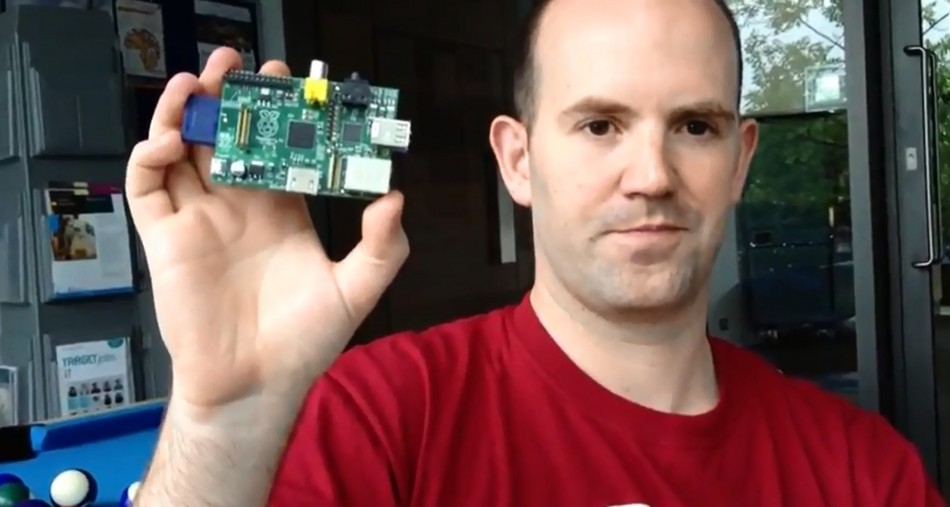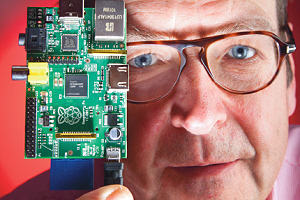Like most of the ideas behind the great technological companies of this generation, the idea behind Raspberry Pi was brainstormed by the collective minds of more than one individual. The Raspberry Pi was founded by Eben Upton, Rob Mullins, Jack Lang, Alan Mycroft, Pete Lomas, and David Braben.
Before becoming the founders of the Raspberry Pi Foundation they all had different occupations.
Eben Upton:
 Upton had the position of Director of Studies in Computer Science. He was the director of studies at St John's College and his responsibilities mostly consisted of being responsible for undergraduate admissions and organising teaching for the Computer Science students attending Saint John.
Upton had the position of Director of Studies in Computer Science. He was the director of studies at St John's College and his responsibilities mostly consisted of being responsible for undergraduate admissions and organising teaching for the Computer Science students attending Saint John.
Jack Lang:
 Majored in Computer Science. Demonstrator in the Computer Laboratory. consulting company Topexpress, one of whose projects was designing some of the software for the BBC Microcomputer. founder and chief technologist of Netchannel Ltd. founded Electronic Share Information Ltd. Author of The High Tech Entrepreneurs Handbook
Majored in Computer Science. Demonstrator in the Computer Laboratory. consulting company Topexpress, one of whose projects was designing some of the software for the BBC Microcomputer. founder and chief technologist of Netchannel Ltd. founded Electronic Share Information Ltd. Author of The High Tech Entrepreneurs Handbook
Alan Mycroft:
 Professor of Computing in the Computer Laboratory of Cambridge University; he is also a Fellow at Robinson College and a co-founder of the Raspberry Pi Foundation. His main focus now are projects that deal with programming, logic, and semantics as part of Cambridge's Programming Research Group. Authored Java 8: Lambdas in Action
Professor of Computing in the Computer Laboratory of Cambridge University; he is also a Fellow at Robinson College and a co-founder of the Raspberry Pi Foundation. His main focus now are projects that deal with programming, logic, and semantics as part of Cambridge's Programming Research Group. Authored Java 8: Lambdas in Action
Pete Lomas:
 Director of Engineering at Norcott Technologies
Director of Engineering at Norcott Technologies
David Braben:
 In the 1980s while still an undergraduate Braben worked on game development with the Elite series. In 1994 he founded a British video game developing company called Frontier Developments Ltd. In 2008 Braben transitioned into an investor and non-exec director of Phonetic Arts
In the 1980s while still an undergraduate Braben worked on game development with the Elite series. In 1994 he founded a British video game developing company called Frontier Developments Ltd. In 2008 Braben transitioned into an investor and non-exec director of Phonetic Arts
Raspberry Pi is defined as a dynamic microcontroller that is capable of just about anything a computer is. It was developed by Eben Upton and his colleagues in order to introduce affordable computers and computing power to the masses. The Raspberry Pi's retail price is $25-$35 depending on the model. Their old jobs/professions put the creators of the Raspberry Pi in a position that allowed them to realize that there was a shortage of people interested in computers and its related fields: Computer Science, Programming, Engineering, Coding, and Web Development. It was this shortage that inspired the creators to make this device available to practically anyone. They figured if they made a device capable of anything a computer is, and if they involved coding as a way to get it to work then people will become more interested in what the Raspberry Pi and Programming have to offer.
